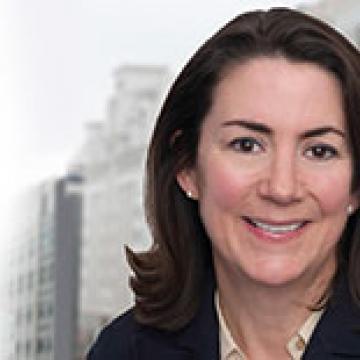Why did Trump say 'evil losers'?
The president's choice of words to describe terrorists might be more strategic than you think
Last week, President Trump coined the term “evil losers” in a joint press conference with Palestinian Authority President Mahmoud Abbas. Internet trolls immediately dismissed the president’s newest nickname as unpresidential and playground talk. But the moniker may be more calculated than it appears.
Reacting to the Manchester terrorist attack, Trump commented on “so many young, beautiful, innocent people living and enjoying their lives murdered by evil losers in life,” adding, “I won't call them monsters because they would like that term. They would think that's a great name. I will call them from now on ‘losers’—because that's what they are. They’re losers. And we’ll have more of them. But they’re losers—just remember that."
My sense is that this was a carefully calculated remark. It appears that the president was not speaking off the cuff. Presidents rarely ad lib on trips to the Middle East. Far from being an impulsive, extemporaneous response to breaking news, I think there’s a history behind “evil losers” that may have been missed in the immediate reaction online and on cable TV.
Trump’s supporters are used to hearing him brand others as losers: USA Today recently published a list of 43 different people and organizations Donald Trump has called losers over the years—everyone from Standard & Poor’s to Karl Rove—so this was in keeping with his way of speaking that is so popular with his base. And while other presidents have shied away from describing others as losers, calling our enemies evil is certainly nothing new.
For example, in the aftermath of 9/11, President George W. Bush called the hijackers “evildoers.” He also said in those early days that “we fight not a religion; ours is not a campaign against the Muslim faith. Ours is a campaign against evil.” His “axis of evil” in the 2002 State of the Union address referred to Iran, Iraq, and North Korea’s state sponsorship of terrorism. Both President Bush and President Obama believed that the use of terminology like “radical Muslim” or “Muslim extremists” could be a possible recruiting tool for terrorist groups and would grant undeserved religious legitimacy to such movements. So Bush and Obama worked to clarify that the “war on terror,” a phrase coined by Bush, was being fought against those who were using their faith as justification for harming the American people—but that the United States was not at war with the entire religion of Islam. And while Obama refused to label them “radical Islamic terrorists,” he did call ISIS “the face of evil” after the Paris attack in 2015.
Trump is not the first president to seek to diminish terrorists rhetorically. In 1990, President George H.W. Bush purposely mispronounced the name of Saddam Hussein—saying SAD-um, which is translated as “barefoot beggar,” instead of sa-DOM, which means “one who confronts.” At the time, critics thought Bush 41 was linguistically challenged. But it turned out the mispronunciation was a calculated means of diminishing the movement that Saddam Hussein was leading. Obama also was not above name-calling when he referred to ISIS as a “JV team,” telling David Remnick of The New Yorker that “the analogy we use around here sometimes, and I think it is accurate, is if a JV team puts on Lakers uniforms, that doesn’t make them Kobe Bryant.” There are plenty of JV teams who win; not so many evil losers do.
“Evil losers” contradicts the narrative that ISIS is trying to spread—namely, that last week’s attack was a success. Trump’s nickname made the organization look like a failure, created an unattractive reputation for potential new recruits, and put up a public relations roadblock that ISIS would have to combat in order to keep the group growing. If I were a betting person, I’d put money on the phrase having made it into the president’s prepared remarks with the full approval of the National Security Council, the State Department, and the CIA.
I’d also bet that we’ll hear “evil losers” again, and that the name will stick. Just ask “Crooked Hillary,” “Little Marco,” and “Lyin’ Ted” if Donald Trump’s nicknames have a way of working.
